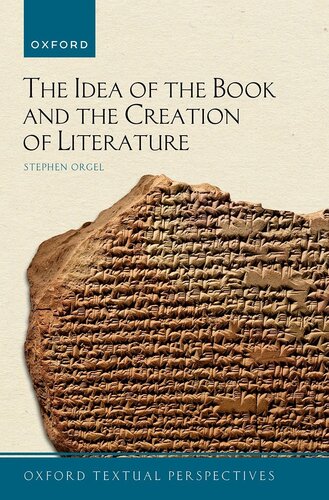

Most ebook files are in PDF format, so you can easily read them using various software such as Foxit Reader or directly on the Google Chrome browser.
Some ebook files are released by publishers in other formats such as .awz, .mobi, .epub, .fb2, etc. You may need to install specific software to read these formats on mobile/PC, such as Calibre.
Please read the tutorial at this link: https://ebookbell.com/faq
We offer FREE conversion to the popular formats you request; however, this may take some time. Therefore, right after payment, please email us, and we will try to provide the service as quickly as possible.
For some exceptional file formats or broken links (if any), please refrain from opening any disputes. Instead, email us first, and we will try to assist within a maximum of 6 hours.
EbookBell Team

4.7
106 reviewsTexts, however, do not need to be books-they are not even necessarily written. The oldest poems were composed to be recited, & only written down centuries later. Much of the most famous poetry of the English Renaissance was composed in manuscript form to circulate among a small social circle. Plays began as scripts for performance.
What happens to a play when it becomes a book, or to a collection of poems circulated among friends when it becomes a volume of sonnets? How do essays, plays, poems, stories, become Works? How is an author imagined? In this new addition to the Oxford Textual Perspectives series, Stephen Orgel addresses such questions & considers the idea of the book not simply as a container for written work, but as an essential element in its creation.
Preface excerpt
John Carter’s ABC For Book Collectors, in its several revisions since 1952, has been an indispensable resource. Dennis Duncan & Adam Smyth’s excellent collection Book Parts,...